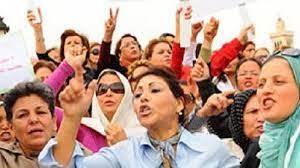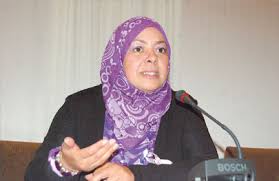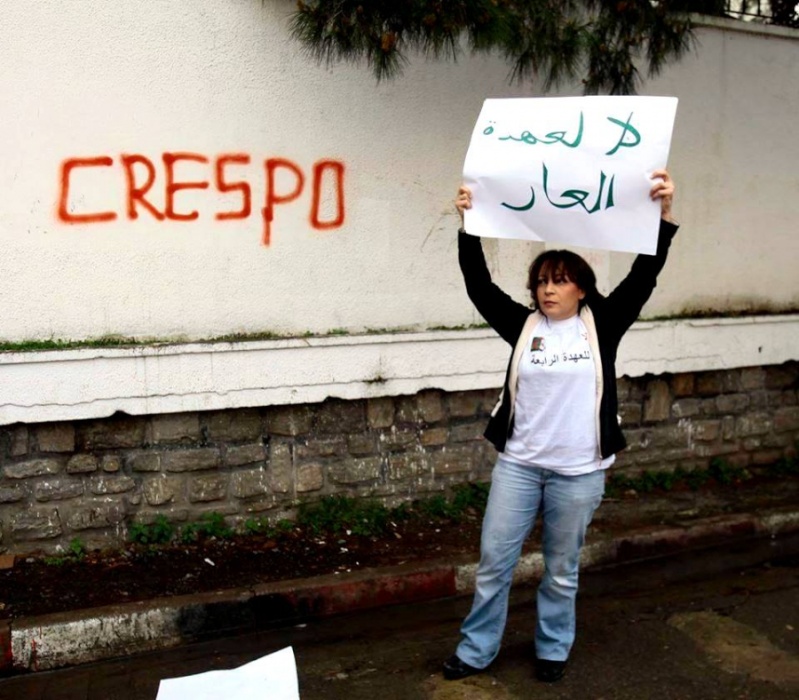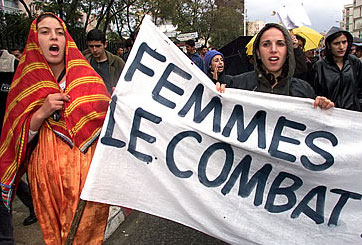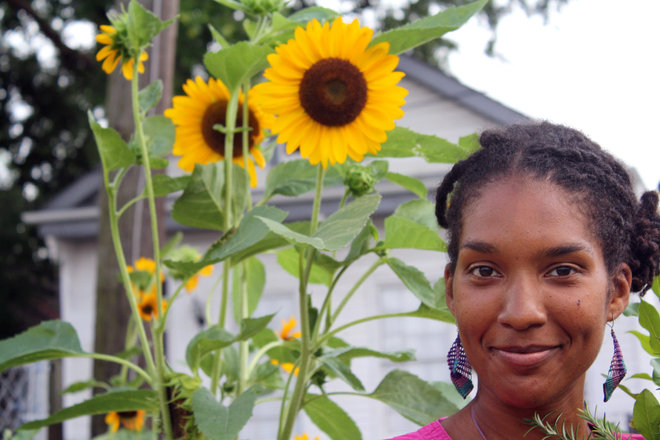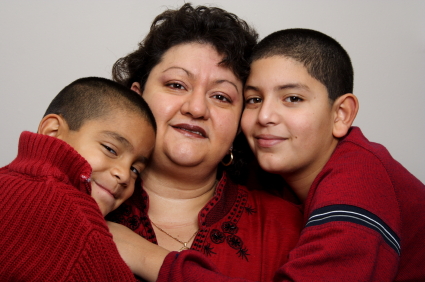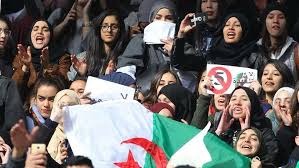
Friday, March 29, tens of thousands of protesters filled the streets of Algiers and across Algeria, rejecting the Army’s version of “compromise” and insisting on popular democracy. This is the sixth mass demonstration in six Fridays, and there have been other, smaller ones during the weeks. Already, the people have removed the forever-and-a-day President Abdelaziz Bouteflika. What happens next is unclear, as it always is, but what is clear, both from reports and from the histories of Algerian people, is that once again women are key leaders and constituents of this uprising, insurgent demand for real democracy, real equality, and real freedom. Report after report after report after report has noted the presence of women “on the front lines”, the ways in which women have retaken and reshaped the public space. These women are part of a longstanding Algerian women’s movement. Like their sisters in Tunisia, in Algeria, women have always been in the forefront of the democratic struggle, have always been the revolutionary guards.
On March 16, Algerian Women for Movement Towards Equality released a statement-petition: “We are currently experiencing a magnificent, peaceful popular uprising against the political system in place. The massive presence of women in the processions testifies to the profound transformations of our society and demands recognition of women’s rights in an egalitarian Algeria.
“This system has reigned supreme since independence using coercive and autocratic means to defeat any desire for change and democratization. In addition to the destruction of the institutions of the Republic (health, education, justice, culture, etc.), the beggaring of political life, corruption, authoritarianism and social injustices, this system has also implemented a Machiavellian strategy sustaining and reinforcing inegalitarian thinking and practices. Algerian women have paid a high price, both symbolically, formally and realistically.
“The history of the Algerian struggles testifies to the massive commitment of women to all the just and decisive struggles that the country has carried out: the War of National Liberation, the building of the independent Algerian State, the revolt of October 1988, trade union, student and democratic struggles before and after October 1988, the struggle against armed fundamentalist groups during the 1990s, etc. Alongside men, women conceptualized, developed and conducted struggles in the hope of building an egalitarian society and seeing this concrete equality lived during these difficult moments become an indisputable achievement once the goals have been achieved.
“Unfortunately, this promised equality is not yet realized. The massive schooling of girls and its procession of competent graduates, our presence in the world of work as well as the legislative and regulatory changes wrenched by decades of struggle, have not yet taken women out of their minority status in society, which remains patriarchal, and in institutions.
“The active and unconditional participation of Algerian women in the February 22nd Movement encourages us to reaffirm our determination to change the system in place with all its components, including its sexist, patriarchal and misogynistic aspects.
“On March 16, 2019, a women’s meeting was held in Algiers. After a debate and a wide consultation, it is retained as follows:
• We, the women who signed this declaration, are convinced that the construction of our common future is nothing without full equality between citizens, regardless of gender, class, region or belief.
• We must continue to be present everywhere with our colleagues, our neighbors to maintain this beautiful diversity in all processions but also to make more visible our demand for equality.
• We decided to create a feminist space that will be positioned every Friday at the portal of the Central Faculty of Algiers.
• We support and encourage similar initiatives throughout the Algerian territory and fully subscribe to all statements that consider equality between women and men as one of the priorities for the change of the current system.
• We call on all women who recognize themselves in this call to join their signatures to ours, to integrate feminist spaces where they exist or to initiate them when conditions permit, and to participate in our next meetings.
• We call to take into account the equal representation of women in any citizen initiative for the exit of this crisis.
• We condemn any act of harassment during demonstrations.
Algiers, March 16, 2019” (You can read the original and sign the petition here.)
On February 22, 2014, just before Bouteflika was to formally announce his candidacy, Amira Bouraoui– a gynecologist, mother of two, “ordinary woman” – showed up at the gates of her local university, stood there alone with a placard, and said, STOP. She said, Barakat! Ça suffit! It’s enough! Around the world, people heard a woman saying, yet again, “¡Ya basta!” Within two days, that singular action sparked a movement. For the past ten years, the Collectif Féministe d’Alger(the feminist association of Algiers) has been organizing for women’s dignity, rights and power.
Five years later Amira Bouraoui is joined by 83-year-old Djamila Bouhired, a guerrilla combatant in Algeria’s war of independence; 17-year-old ballet dancer Melissa Ziad; Zoubida Assoul, president of the Network of Arab Women Lawyers; Louisa Hanoune, Secretary General of the Workers Party; and hundreds of thousands of women of all ages and from all sectors of the country. They carry their decades and centuries of resistance into the spaces they seize and create. The future is now.
(Photo Credit: NPA2009 / DR)
